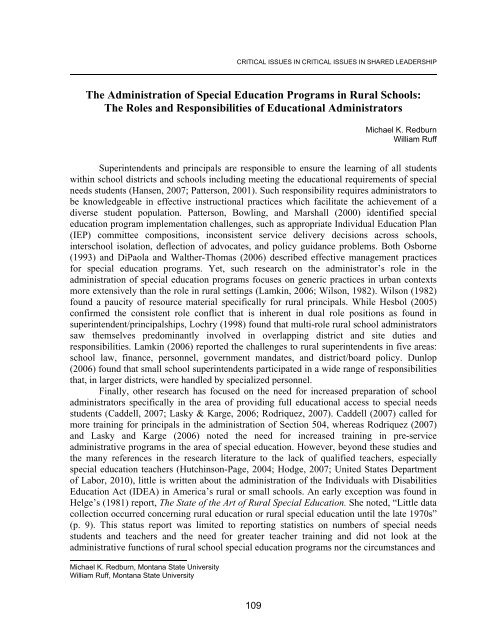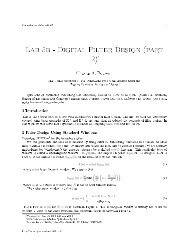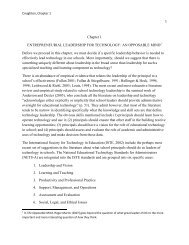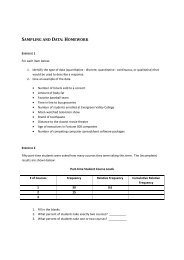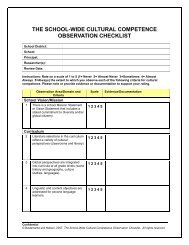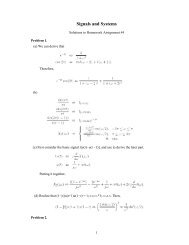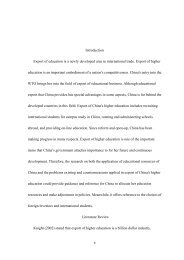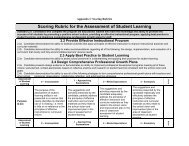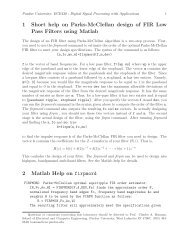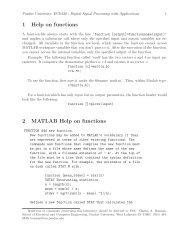Blazing New Trails - Connexions
Blazing New Trails - Connexions
Blazing New Trails - Connexions
You also want an ePaper? Increase the reach of your titles
YUMPU automatically turns print PDFs into web optimized ePapers that Google loves.
CRITICAL ISSUES IN CRITICAL ISSUES IN SHARED LEADERSHIP<br />
The Administration of Special Education Programs in Rural Schools:<br />
The Roles and Responsibilities of Educational Administrators<br />
109<br />
Michael K. Redburn<br />
William Ruff<br />
Superintendents and principals are responsible to ensure the learning of all students<br />
within school districts and schools including meeting the educational requirements of special<br />
needs students (Hansen, 2007; Patterson, 2001). Such responsibility requires administrators to<br />
be knowledgeable in effective instructional practices which facilitate the achievement of a<br />
diverse student population. Patterson, Bowling, and Marshall (2000) identified special<br />
education program implementation challenges, such as appropriate Individual Education Plan<br />
(IEP) committee compositions, inconsistent service delivery decisions across schools,<br />
interschool isolation, deflection of advocates, and policy guidance problems. Both Osborne<br />
(1993) and DiPaola and Walther-Thomas (2006) described effective management practices<br />
for special education programs. Yet, such research on the administrator’s role in the<br />
administration of special education programs focuses on generic practices in urban contexts<br />
more extensively than the role in rural settings (Lamkin, 2006; Wilson, 1982). Wilson (1982)<br />
found a paucity of resource material specifically for rural principals. While Hesbol (2005)<br />
confirmed the consistent role conflict that is inherent in dual role positions as found in<br />
superintendent/principalships, Lochry (1998) found that multi-role rural school administrators<br />
saw themselves predominantly involved in overlapping district and site duties and<br />
responsibilities. Lamkin (2006) reported the challenges to rural superintendents in five areas:<br />
school law, finance, personnel, government mandates, and district/board policy. Dunlop<br />
(2006) found that small school superintendents participated in a wide range of responsibilities<br />
that, in larger districts, were handled by specialized personnel.<br />
Finally, other research has focused on the need for increased preparation of school<br />
administrators specifically in the area of providing full educational access to special needs<br />
students (Caddell, 2007; Lasky & Karge, 2006; Rodriquez, 2007). Caddell (2007) called for<br />
more training for principals in the administration of Section 504, whereas Rodriquez (2007)<br />
and Lasky and Karge (2006) noted the need for increased training in pre-service<br />
administrative programs in the area of special education. However, beyond these studies and<br />
the many references in the research literature to the lack of qualified teachers, especially<br />
special education teachers (Hutchinson-Page, 2004; Hodge, 2007; United States Department<br />
of Labor, 2010), little is written about the administration of the Individuals with Disabilities<br />
Education Act (IDEA) in America’s rural or small schools. An early exception was found in<br />
Helge’s (1981) report, The State of the Art of Rural Special Education. She noted, “Little data<br />
collection occurred concerning rural education or rural special education until the late 1970s”<br />
(p. 9). This status report was limited to reporting statistics on numbers of special needs<br />
students and teachers and the need for greater teacher training and did not look at the<br />
administrative functions of rural school special education programs nor the circumstances and<br />
Michael K. Redburn, Montana State University<br />
William Ruff, Montana State University


